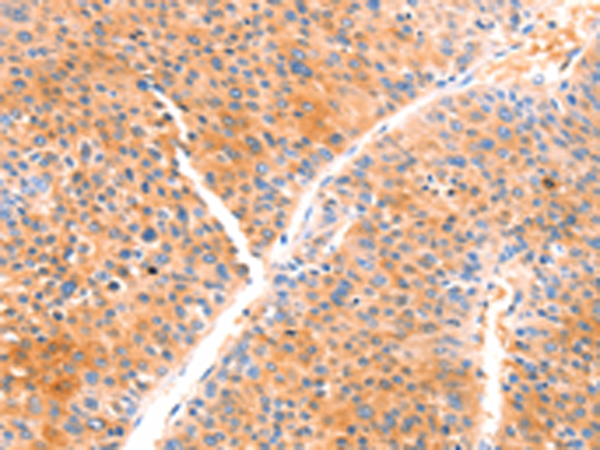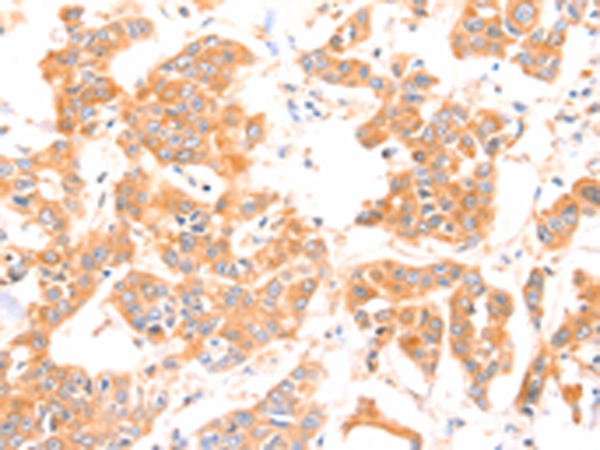


| WB | DB: 1/500 | Human,Mouse,Rat |
| IF | 咨询技术 | Human,Mouse,Rat |
| IHC | 咨询技术 | Human,Mouse,Rat |
| ICC | 技术咨询 | Human,Mouse,Rat |
| FCM | 咨询技术 | Human,Mouse,Rat |
| Elisa | 咨询技术 | Human,Mouse,Rat |
| Aliases | PRP; TSA; PRX2; PTX1; TPX1; NKEFB; PRXII; TDPX1; NKEF-B |
| WB Predicted band size | 22 kDa |
| Host/Isotype | Rabbit IgG |
| Antibody Type | Primary antibody |
| Storage | Store at 4°C short term. Aliquot and store at -20°C long term. Avoid freeze/thaw cycles. |
| Species Reactivity | Human, Mouse, Rat |
| Immunogen | Synthetic peptide of human PRDX2 |
| Formulation | Purified antibody in PBS with 0.05% sodium azide and 50% glycerol. |
+ +
以下是关于Phospho-PTEN(Y240)抗体的3篇参考文献示例:
1. **文献名称**:*Phosphorylation of PTEN at Tyrosine 240 Modulates Its Membrane Localization*
**作者**:Lee, J.O. et al.
**摘要**:该研究利用Phospho-PTEN(Y240)抗体,发现Y240位点的磷酸化通过抑制PTEN与细胞膜的相互作用,削弱其肿瘤抑制功能,促进PI3K/AKT信号通路的活化。
2. **文献名称**:*Tumor-Derived Mutations Disrupt PTEN Phosphorylation at Y240 and Promote Oncogenesis*
**作者**:Wang, X. et al.
**摘要**:通过Phospho-PTEN(Y240)抗体检测肿瘤样本,发现Y240磷酸化水平与PTEN失活相关,该位点的突变导致PTEN无法被调控,加速肿瘤细胞增殖。
3. **文献名称**:*Src Kinase-Mediated Phosphorylation of PTEN at Y240 Regulates Cellular Senescence*
**作者**:Gupta, A. et al.
**摘要**:研究证实Src激酶可磷酸化PTEN的Y240位点,利用特异性抗体揭示这一修饰促进PTEN的核转位,从而调控细胞衰老和DNA损伤反应。
(注:以上文献为示例,实际引用需查询具体数据库如PubMed。)
The Phospho-PTEN(Y240) antibody is a specialized tool used to detect the phosphorylation status of tyrosine residue 240 (Y240) on the PTEN (Phosphatase and Tensin Homolog) protein. PTEN, a tumor suppressor, regulates the PI3K/AKT signaling pathway by dephosphoryrating phosphatidylinositol (3.4.5)-trisphosphate (PIP3), thereby inhibiting cell proliferation and survival. Post-translational modifications, including phosphorylation, modulate PTEN’s activity, stability, and subcellular localization. Phosphorylation at Y240. mediated by Src family kinases, has been implicated in altering PTEN’s tumor-suppressive functions. Studies suggest that Y240 phosphorylation may reduce PTEN’s lipid phosphatase activity, promote its cytoplasmic retention, or enhance protein stability, depending on cellular context.
This antibody is widely employed in cancer research to investigate PTEN dysregulation mechanisms, particularly in tumors with intact PTEN but aberrant signaling (e.g., glioblastoma, breast cancer). It enables detection via techniques like Western blotting, immunohistochemistry, and immunofluorescence. Researchers use it to explore correlations between Y240 phosphorylation status, PTEN inactivation, and oncogenic outcomes, as well as to evaluate therapeutic responses targeting PTEN-related pathways. Specificity validation (e.g., using non-phosphorylated peptides or phosphatase-treated samples) is critical to ensure accurate interpretation. Understanding Y240 phosphorylation dynamics may unveil novel biomarkers or therapeutic targets for cancers linked to PTEN dysfunction.
×